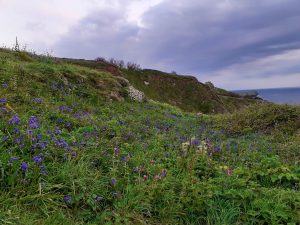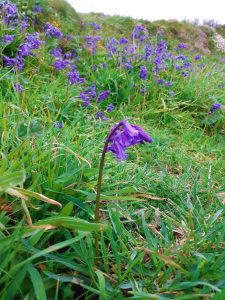
For 2 years, I went to university in Oxford. Home to 175,000 people, it’s overflowing with students, home to three universities and dozens of shops. There are tourists galore lining up to buy their “University of Oxford” hoodies, Oxford snow globes, and Oxford magnets. I’m used to tourists, but, as a girl who has spent the majority of her life in middle-of-nowhere villages, you should be able to understand why I felt overwhelmed. There were no street markets, no days of celebration about one random saint, no walking into a shop and finding it’s run by your old primary school teacher…
It also lacks something else, something significant, and it’s probably the thing I missed most about Cornwall.
Stars.
Oxford has no stars.
Obviously, they are still there, but they can’t be seen. Balls of fiery gas and burning light are being beaten out by the lights of an entire city. It’s the thing I hated most about it.

When I came back home, it was like another world. Not because of the lack of people, but because of the nightly silence. In Oxford, there was always a car or a bus or an ambulance going past my window. (I lived near Oxford’s biggest hospital. Bad call.) If I stick my head out of my bedroom window tonight, I will hear an owl and the sea. If I stuck my head out a window in Oxford, it was cars. Just cars.
One night in Oxford, I was walking back from the local pub. I looked up. No clouds, no stars. In January of this year, I was walking back from a Cornish pub with a friend. I looked up. No clouds, many stars. He had to drag me on slightly because I was too busy looking at the constellations to continue walking.

When I started writing this piece, it was quarter past eight in the evening. I was sat at the top of a cliff, looking out at the sea and trying to think of story ideas. I’d only heard and seen one car on my entire walk there: a 4×4 being driven to a cliff house. The loudest thing was a seagull; I was sat next to a patch of bluebells, snowdrops, and buttercups.
We forget about the beauty of Cornwall when we’re complaining about the tourists. We forget to appreciate it all – the silence, the sea, the stars. We forget our county is gorgeous. Day in, day out, the majority of us are at work or school; few of us have the time to appreciate the views around us. Over the summer, when Cornwall is being roamed by emmets, we forget about the local countryside because we’re too busy complaining. I hate to use the phrase “in this time of turmoil”, but it fits. With COVID-19 sweeping the world, we should be remembering. Forgetting the bad and remembering the good. Remembering where we live and why it’s so beautiful.

Find a calm place and try to remember the beauty of your home. Think of the bluebells and the snowdrops and the buttercups. The grass, the brambles, the twisting trees. Look around you.
Here in Cornwall, too many of us are forgetting about nature. We forget about the sea until we go surfing. We forget about the flowers until we go to a garden centre.
And if you can’t do any of this, if you can’t get to the bluebells, just do one thing instead. Look up at the sky at night. Look at the stars and remember where you are. Remember how lucky you are that, in this age of city skylines, you get to see the stars.
